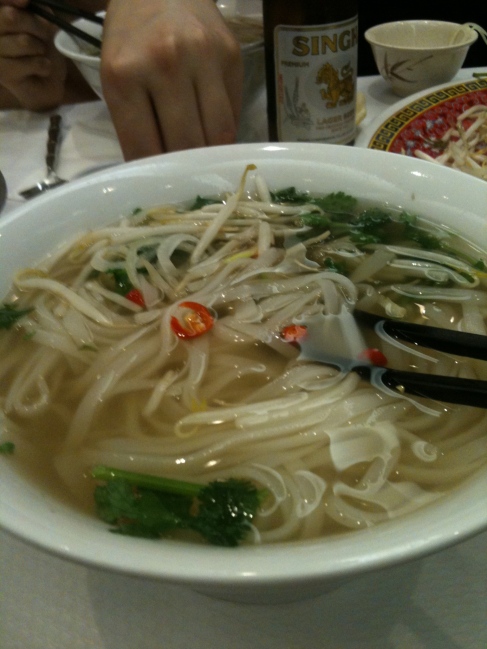French immersion? Ya right. Thirteen years (and 9 of it in “immersion”) of painstakingly conjugating every French verb tense has prepared me very little for a life immersed in French language. If anyone amongst you ever does decide to make the voyage to the land of wine, long bread, cheese, and moutarde, like me start you off on the right foot. This French lesson is partially sponsored by my wonderful and eccentric French teacher, Etienne.
Don’t know the actual word for something?
- Don’t just point your finger at it in a fruitless attempt at making sense. DO NOT say um. Um is english, not universal. Euhh is French. Add in a little frown.
- ‘Ce truc là’, ‘La truc sur sa tête’, ‘Le truc que j’ai mangé’… What do all of these phrases have in common?? Truc veut dire thing, thingy-ma-bobber, thingy, little thing, etc. It is perfectly normal and acceptable French. Hence the more you use it, the more you are accepted.
Les Gros Mots
When your host parents ask you what you learned in school that day, and you say you spent an hour learning gros mots, the shocked looks on their faces are not because you learned big words. The list of French swear words and derogatory phrases and their different conjugations in my notebook is one of my longest notes thus far, and also one of the most useful. It even includes a level of vulgarity scale, ranging from ‘peu vulgaire’: zut, merde, to vraiment vulgaire: google them.
The curse of the mumble
I’m getting more and more comfortable speaking in French, especially with my host parents. I try to use only words I know so I can speak in complete sentences and not just fade off at the end of a phrase and hope that they can guess what I’m referring to. My new strategy if I’m not exactly sure of how to conjugate that verb? Just mumble and hope they can’t tell if I’m wrong! I don’t suggest this strategy. After being asked what I learned that day, I responded that we learned the words ‘bite’ (pronounced ‘beet’) and ‘biton’, which I found funny because Eszter had just been talking about her Papa’s tummy (you’ll get it in a second). The parents also began to laugh… if a little uncomfortably. “Are you sure that’s what you learned?” They questioned. I soon realized my mistake, and thought they were just laughing at me for not remembering what I had learned, a little rude, I thought. I corrected myself, “I meant the difference between ‘bide’ and ‘bidon’. (Bide is the equivalent of a kid’s tummy, but is also slang that means pretty much ‘beer belly’, whereas ‘bidon’ is a container that holds gasoline, but is also slang for phoney or bogus) Confusing, I know. Still don’t get why they were laughing? Google bite.
Because it just makes more sense that way
-From a gander around Musée de l’Orangerie, I learned ‘nature morte’ (dead nature) means still life
-A short affair without emotional attachment? Une aventure, bien sûr!
-“She said all that was on her mind”= Elle a sorti tout ce qu’elle avait sur le coeur (She let out everything that was on her heart)
Now for some literal food for thought…

Yes Rachel, as did all Anglophones growing up in Montreal, merde was a staple on my vocabulary. You could comment on a lot using that one word and many facial expressions.
Hi Rachel” PJ and I have really enjoyed your introduction to French colloquialism. While we have long been familiar with zut and merde, our favourite came via Ada’s French language daycare.
While trying to correct Ada’s own expressions of frustration as a 3 year old, the daycare staff taught her to say “Chocolat chaud!” as an acceptable substitute from “shit””fuck” “zut” merde”. (Where she learned these bad or gros mots I can’t imagine, but learn them she did). We loved the explosive sh sounds and and the emphatic “-ocolat -aud” expletives. And equally loved the neutralizing effect of soothing hot sugary soothing chocolate. Has anyone in France heard of this substitution? BB and PJ
Hey Sweetie, I am loving reading, and even re-reading (to your Uncle Tim as an interruption in his marking) your entries. Your writing depicts your experiences so well, with humour and terrific observations. Thanks for the glimpse of your world there. love you so much.